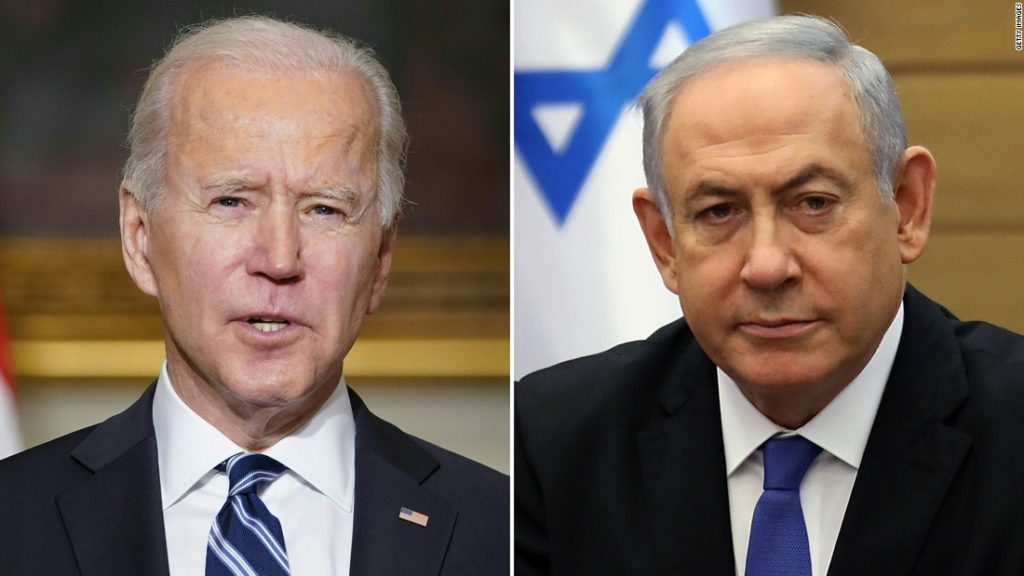“It was a good conversation,” Biden told reporters in the Oval Office shortly after the call ended, without elaborating.
In a post on Twitter, Netanyahu said he had spoken with Biden for roughly an hour in “friendly and warm” terms, affirming the US-Israel alliance and discussing issues related to Iran, regional diplomacy and the coronavirus pandemic.
He attached a photo of himself on the phone, smiling widely, with a map of the Middle East in the background.
Questioned about why Biden had waited so long to call Netanyahu after speaking with roughly a dozen other world leaders, the White House said last week that there wasn’t anything to be read into the delay.
“He’ll be talking with him soon,” press secretary Jen Psaki said, declining to provide a specific date or time for when they would speak. Later, she affirmed Netanyahu would be Biden’s first telephone call to a Mideast leader.
Still, the decision to forgo a call to the Israeli Prime Minister for nearly his first month in office seemed like hardly a coincidence. One source familiar with the White House thinking said there was a sense of payback in making Netanyahu wait for a call.
The Israeli leader’s cool treatment of President Barack Obama and his close alignment with Trump and the Republican Party, as well as the length of time it took him to congratulate Biden on his victory, had not gone unnoticed, said the source.
Other current and former US officials said Biden was simply “right sizing” the US relationship with Israel and that with challenges posed by China, Russia, climate change and other problems, the Middle East is not a top priority.
For his part, Netanyahu downplayed the delay.
“(President Biden) calls leaders in the order that he finds acceptable, North America, then Europe,” Netanyahu said at a news conference last week. “He hasn’t reached the Middle East yet. I presume he will call me. Believe me, I have no doubt about it.”
On Friday, Biden is expected to lay out his foreign policy vision in more detail in a virtual speech to the Munich Security Conference, including the prospects of returning to the Iran nuclear deal.
Israel opposed that agreement, and the issue is likely to be a rift between Netanyahu and the Biden administration, just as it did under Obama.
But on other issues the two men seem aligned, including on support for the normalization agreements between Arab states and Israel that Trump’s administration helped broker.
CNN’s Kylie Atwood, Oren Liebermann, Andrew Carey and Amir Tal contributed to this report.
You may also like
-
Afghanistan: Civilian casualties hit record high amid US withdrawal, UN says
-
How Taiwan is trying to defend against a cyber ‘World War III’
-
Pandemic travel news this week: Quarantine escapes and airplane disguises
-
Why would anyone trust Brexit Britain again?
-
Black fungus: A second crisis is killing survivors of India’s worst Covid wave

